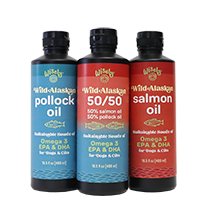Does Your Dog Have Itchy Skin?
Does your dog scratch and bite themself, creating bare patches where hair doesn’t grow? Is the skin red and irritated, with a rash or little red bumps? Do you notice flaking skin or excessive shedding?
Skin problems will affect about one in three dogs at some time in their lives, and while there are many root causes, nutrition plays a key role. Some dogs develop sensitivities to ingredients in their food, setting up an inflammatory response that results in intense itching. Other dogs may be missing important fats or other nutrients in their diet that keep skin healthy. Making some changes to your dog’s food and adding a few key supplements can work wonders.
1. Try a different diet
A dog’s exposure to the same ingredients day after day can create food sensitivities, which is why many experts now advise rotating between foods with different meat and carbohydrate sources to prevent sensitivities from overexposure. Common triggers are corn and wheat, and widely-fed meats like beef or chicken. Trying a novel protein such as fish, pork, lamb, venison, duck or rabbit may do the trick.
Dry kibbles designed to relieve skin problems typically have a single meat source, and either a single grain source or a starchy vegetable substitute such as potatoes, sweet potatoes, or legumes. These are often referred to as Limited Ingredient Diets (LIDs). The concept is to limit your dog’s exposure to different proteins and carbohydrates in an effort to isolate what they may be sensitive to. If grains are employed, oats, barley, millet, or rice are the least likely to trigger a response.
Less-processed alternatives that you mix with water or raw goat milk, such as dehydrated and freeze-dried foods, can be a fun way to create novel meals and have been known to correct many problems. You can add a small amount of meaty raw or air-dried food to boost the protein in these easy to prepare diets.
For other dogs, high-quality whole food diets of canned, raw, or lightly cooked food have resolved many skin issues. Home-preparing your dog’s food gives you total control over ingredients, and you can experiment to find the combinations that best relieve your dog’s symptoms.
2. Use digestive enzymes
Sometimes our pets’ bodies don’t work as efficiently as they should. This can be due to stress, age, or other health issues. Digestive enzymes are necessary for the breakdown and assimilation of nutrients in the gut and can prevent allergy symptoms through the complete digestion of proteins (the most common trigger for dog and cat food sensitivities).
Although present in raw foods, enzymes are destroyed by the heat and processing necessary to produce dry kibble. Enzymes help to convert large molecules of carbohydrates, fats, and protein into smaller parts so that they can be absorbed by the small intestine into the bloodstream.
Adding digestive enzymes with every meal can bring about a dramatic reduction of allergy symptoms, often within days. We love the idea of pets getting naturally occurring enzymes from whole, raw foods like raw goat milk or greens,
and we sell a variety of tasty options. If you would prefer to just add digestive enzymes directly
to your pet’s food, we recommend We recommend Wisely Good Digestion or Optagest.
3. Add essential fatty acids
 Essential fatty acids (EFAs) are key nutrients for healthy skin and coat. Not all fats are high in the most important EFAs, which include both Omega 3s and Omega 6 fatty acids. Some of the most concentrated sources are fish oils, shellfish, and whole wild-caught fish, eggs, and grass-fed meats. In addition to reducing cellular inflammation and calming itchiness, EFAs can correct dry skin, flakiness, and excessive shedding. Our favorite skin and coat supplements are Wisely Pollock Oil, Wisely Salmon Oil, Wisely 50/50 Oil, and Canine Matrix Skin and Coat.
Essential fatty acids (EFAs) are key nutrients for healthy skin and coat. Not all fats are high in the most important EFAs, which include both Omega 3s and Omega 6 fatty acids. Some of the most concentrated sources are fish oils, shellfish, and whole wild-caught fish, eggs, and grass-fed meats. In addition to reducing cellular inflammation and calming itchiness, EFAs can correct dry skin, flakiness, and excessive shedding. Our favorite skin and coat supplements are Wisely Pollock Oil, Wisely Salmon Oil, Wisely 50/50 Oil, and Canine Matrix Skin and Coat.
4. Control your dog’s fleas
Dogs with underlying nutritional deficiencies or immune system dysfunction will be more alluring to fleas and will often develop flea bite allergies. Making the necessary food changes and adding enzymes and essential fatty acids to the diet will help to raise your dog’s natural resistance to leas, but in the meantime, it’s important to reduce their numbers. Please see our flea control page for more information on this topic.

